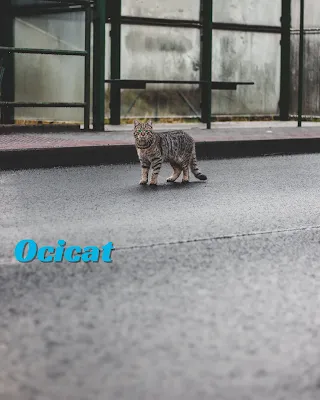Can Domestic Cats Crossbreed with Bobcats?
Unraveling the Mysteries of Feline Genetics Explore the potential for domestic cats to crossbreed with bobcats and discover 8 exotic-looking domestic cat breeds that offer unique appearances while maintaining domesticated temperaments. Our comprehensive guide delves into the world of feline genetics, providing insights backed by the latest veterinary research. Can Domestic Cats Crossbreed with Bobcats?
In the realm of feline genetics, whether domestic cats can crossbreed with bobcats has intrigued cat enthusiasts and breeders alike. The allure of combining the exotic appearance of a bobcat with the temperament of a domestic cat sparks curiosity. However, as of the latest scientific understanding, there's no concrete evidence supporting the successful crossbreeding of bobcats with domestic cats. The Fascinating World of Exotic-Looking Domestic Cat Breeds
While bobcats may not be part of the domestic cat gene pool, several cat breeds boast captivating and exotic appearances. These breeds make excellent companions, offering a balance between unique aesthetics and domesticated behavior. Let's explore eight such breeds:
1. American Bobtail
Height: 9–10 inches
Weight: 7–16 pounds
Life Expectancy: 13–15 years
The American Bobtail, resembling a miniature bobcat, features wild tales, making them a visually striking breed. Known for their easy-going temperament, these cats are social and quickly form bonds with both family members and strangers.
2. Bengal
Height: 14–16 inches
Weight: 8–15 pounds
Life Expectancy: 10–15 years
Derived from Asian Leopard Cats and domestic cats, Bengals, showcase rosette markings on their coat. Initially shy, they evolve into loyal and vocal family members, engaging in "conversations" with their human counterparts.
3. Bombay
Height: 9–13 inches
Weight: 8–15 pounds
Life Expectancy: 9–15 years
While not resembling bobcats, Bombay's emulate the appearance of small wild cats. Bred to resemble the Indian Black Panther, they are intelligent, playful, and highly social, thriving in homes with constant human companionship.
4. Maine Coon
Height: 10–16 inches
Weight: 8–25 pounds
Life Expectancy: 10-thirteen years
in The Maine Coon, one of the largest domestic breeds, boasts lynx-like tufts in their ears. Despite their size, they are gentle and well-suited for homes with children and other pets, preferring to perch and observe from elevated positions.
5. Norwegian Forest Cat
Height: 9–12 inches
Weight: 12–20 pounds
Life Expectancy: 14-sixteen years
Similar to the Maine Coon, Norwegian Forest Cats are large, fluffy, and have tufts on their ears reminiscent of bobcats. Hardy and adaptable, they make excellent companions for homes with young children.
6. Ocicat
Height: 9–11 inches
Weight: 6–14 pounds
Life Expectancy: 12–18 years
Bred to resemble ocelots, Ocicats exhibit spotted markings akin to bobcats. Intelligent and playful, they require ample playtime and mental stimulation, often getting along well with other cats and dogs.
7.
Pixie-Bob
Height: 9–13 inches
Weight: 9–17 pounds
Despite misconceptions, Pixie-Bobs share only physical features, not DNA, with bobtails. Delightful household companions, they excel in learning tricks, and displaying a playful and adventurous nature.
8.
Savannah
Height: 14–17 inches
Weight: 12–25 pounds
Life Expectancy: 12–20 years
Savannah's, with their spotted markings and large ears, exhibit a slender build. While active and affectionate with their favorite humans, they may be shy around strangers, necessitating modifications to home layouts for their specific needs.
Are Bobcats Suitable as Pets?
The suitability of bobcats as pets hinge on their wild nature and specific needs. Unlike domestic cats, bobcats pose challenges, including resistance to litter box training and a need for ample space. Affectionate bonds with humans, typical in domestic cats, are elusive with bobcats. Consequently, bobcats are best left to experienced exotic pet owners well-versed in wild cat behavior.
While bobcats may not crossbreed with domestic cats, a diverse array of exotic-looking domestic cat breeds awaits those seeking unique companionship. Understanding the distinct needs and temperaments of these breeds ensure a harmonious relationship between humans and their feline friends.

.webp)







.webp)

Comments
Post a Comment